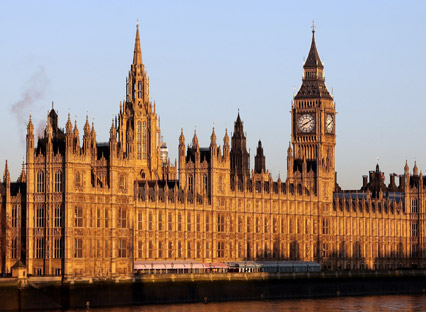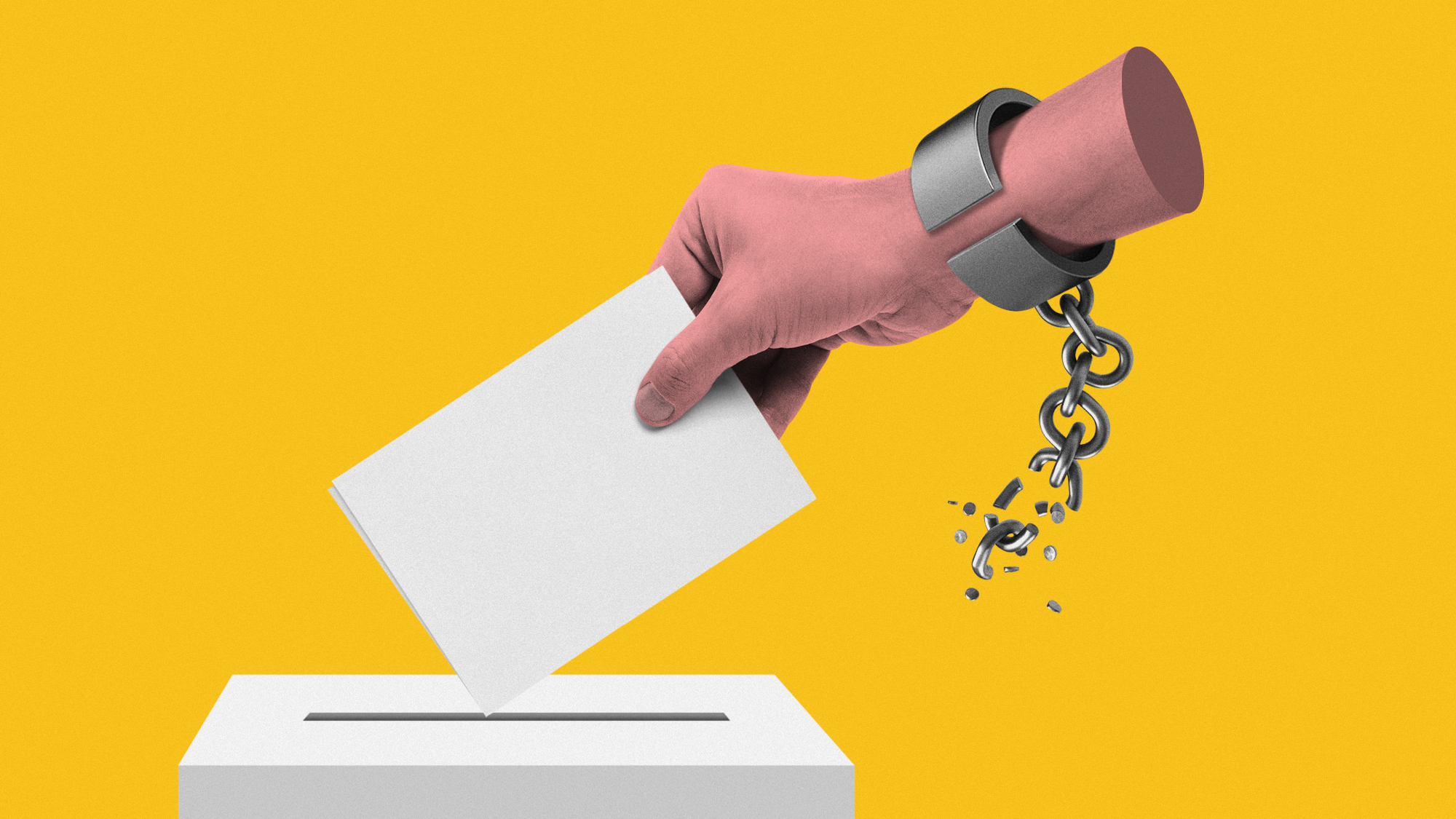How much are UK MPs paid?
Latest inflation-busting wage hike of more than £2,000 triggers widespread anger

A free daily email with the biggest news stories of the day – and the best features from TheWeek.com
You are now subscribed
Your newsletter sign-up was successful
The decision to award MPs a pay rise well above inflation has been met with criticism from public sector workers and even some of the politicians themselves.
The annual adjustment - effective from 1 April - “means Members of Parliament’s salaries will increase from £77,379 to £79,568, a hike of £2,089”, or 2.7%, reports The Independent.
And MPs can also claim expenses to cover the costs of running an office, employing staff, having somewhere to live in London or their constituency, and travelling between Parliament and their constituency.
The Week
Escape your echo chamber. Get the facts behind the news, plus analysis from multiple perspectives.

Sign up for The Week's Free Newsletters
From our morning news briefing to a weekly Good News Newsletter, get the best of The Week delivered directly to your inbox.
From our morning news briefing to a weekly Good News Newsletter, get the best of The Week delivered directly to your inbox.
Some are paid more because of the special jobs they hold as well, including the Speaker and the chairs of the Commons committees, while MPs who are ministers in the Government get an extra ministerial salary.
The latest pay rise means Theresa May will now earn £152,491 - a figure that “doesn’t factor in the value of the prime minister’s flat in Downing Street, or her other official residences”, says fact-checking site Full Fact.
Salaries of MPs are linked to average rises in the public sector, as determined by the Office for National Statistics. “The rise is automatic and not subject to a vote in the House of Commons,” reports The Guardian.
But the new figure “far outstrips the current inflation rate of 1.8% on the main Consumer Price Index measure”, the newspaper notes.
A free daily email with the biggest news stories of the day – and the best features from TheWeek.com
The Independent Parliamentary Standards Authority (Ipsa) was handed control of decisions over MPs’ pay and expenses in the wake of the 2009 expenses scandal. Ispa figures show that once the latest hike kicks in, the basic salary paid to MPs will have risen by £13,730 since April 2010.
They got a 1.8% raise last year, 1.4% in 2017, 1.3% in 2016, and a particularly hefty increase from £67,000 to £74,000 in July 2015.
Ipsa said this week that the additional salary paid to chairs of the Commons committees will also jump by 2.7%, from £15,509 to £15,928.
Harry Fone, a campaign manager at the Taxpayers’ Alliance, told The Independent: “A lot of taxpayers are going to be annoyed with this announcement. In the private sector, pay rises and bonuses are rewarded based on performance, not for just turning up. Ipsa are once again out of touch with the public.”
The Daily Mirror has also blasted the hikes, which come as many people are feeling the negative effects of the economic uncertainty caused by Brexit. “There are some individual MPs who work hard for their constituents and try to use their time in Parliament to improve people’s lives,” says the paper.
“But collectively they have hardly covered themselves in glory at the moment, with their failure to resolve the biggest challenge facing this country in decades.”
The Mirror adds: “If their wages were based on performance then on Brexit alone they should have their pay docked.”
Mark Serwotka, general secretary of the Public and Commercial Services union, has added his voice to the protests, saying: “It is an outrage that MPs are rewarding themselves with an above-inflation pay rise while civil servants, who do some of the most vital jobs in society, are still subject to a cruel 1% de facto pay cap.”
Labour MP Kevin Barron is also angered by the disparity in increases offered to those working in government.
“I am very disappointed to see that Ipsa have this morning awarded MPs a 2.7% pay increase but only 1.5% for parliamentary staff,” he said. “I urge them to look again at the budgets as it cannot be right that the gap is so great.”
A Downing Street spokesperson said that the pay decision-making “is independent of government and Parliament. What government sets are ministerial salaries and they have been frozen since 2010.”
-
 What to know before filing your own taxes for the first time
What to know before filing your own taxes for the first timethe explainer Tackle this financial milestone with confidence
-
 The biggest box office flops of the 21st century
The biggest box office flops of the 21st centuryin depth Unnecessary remakes and turgid, expensive CGI-fests highlight this list of these most notorious box-office losers
-
 The 10 most infamous abductions in modern history
The 10 most infamous abductions in modern historyin depth The taking of Savannah Guthrie’s mother, Nancy, is the latest in a long string of high-profile kidnappings
-
 How corrupt is the UK?
How corrupt is the UK?The Explainer Decline in standards ‘risks becoming a defining feature of our political culture’ as Britain falls to lowest ever score on global index
-
 The Mandelson files: Labour Svengali’s parting gift to Starmer
The Mandelson files: Labour Svengali’s parting gift to StarmerThe Explainer Texts and emails about Mandelson’s appointment as US ambassador could fuel biggest political scandal ‘for a generation’
-
 The high street: Britain’s next political battleground?
The high street: Britain’s next political battleground?In the Spotlight Mass closure of shops and influx of organised crime are fuelling voter anger, and offer an opening for Reform UK
-
 Is a Reform-Tory pact becoming more likely?
Is a Reform-Tory pact becoming more likely?Today’s Big Question Nigel Farage’s party is ahead in the polls but still falls well short of a Commons majority, while Conservatives are still losing MPs to Reform
-
 Taking the low road: why the SNP is still standing strong
Taking the low road: why the SNP is still standing strongTalking Point Party is on track for a fifth consecutive victory in May’s Holyrood election, despite controversies and plummeting support
-
 What difference will the 'historic' UK-Germany treaty make?
What difference will the 'historic' UK-Germany treaty make?Today's Big Question Europe's two biggest economies sign first treaty since WWII, underscoring 'triangle alliance' with France amid growing Russian threat and US distance
-
 Are free votes the best way to change British society?
Are free votes the best way to change British society?Today's Big Question On 'conscience issues' like abortion and assisted dying, MPs are being left to make the most consequential social decisions without guidance
-
 Is the G7 still relevant?
Is the G7 still relevant?Talking Point Donald Trump's early departure cast a shadow over this week's meeting of the world's major democracies